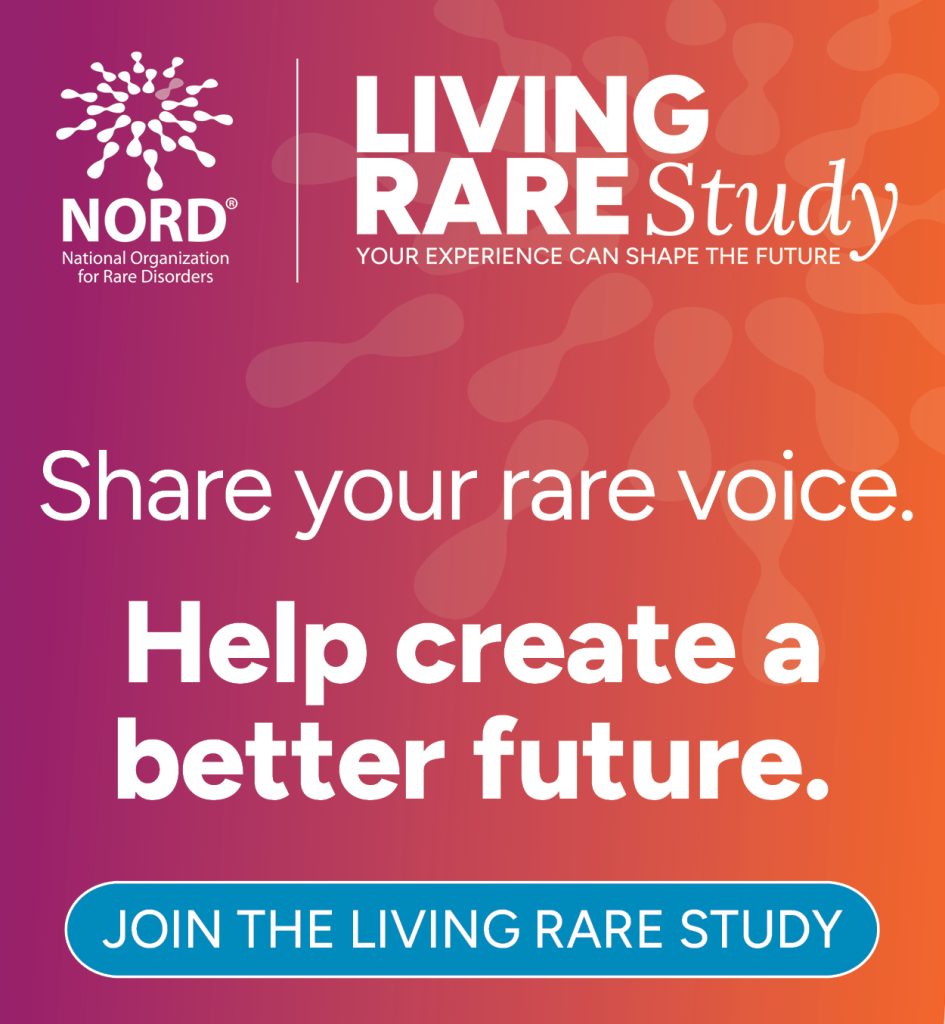Washington, DC, 10/1/2020 — Today, the National Organization for Rare Disorders (NORD®) opened registration for a natural history study on metachromatic leukodystrophy (MLD), a lethal rare disease currently without an FDA–approved treatment. NORD’s Natural History Of MEtachromatic Leukodystrophy (HOME) Study represents an opportunity to address an area of unmet need, providing dynamic data collection and a novel framework for building regulatory-grade rare disease natural history studies incorporating patient-reported information. This pilot project is funded through an award (#75F40119C10091*) to NORD from the US Food & Drug Administration (FDA), Center for Biologics Evaluation and Research (CBER).
The HOME Study, hosted by NORD’s IAMRARE™ Registry Program, enables patients and caregivers to virtually contribute directly to research from the comfort and safety of their home, without the demands and challenges of traveling to a study site. The goals of the study are to enhance understanding of metachromatic leukodystrophy, inform methods for building natural history studies to serve as external controls, reduce the burden for patient participation in clinical trials, and provide innovative methods for the use of natural history study data to help accelerate therapeutic drug development and FDA decision-making.
“Through this ground-breaking project, NORD aims to make a significant contribution to regulatory science by proving the utility of well-designed patient studies, integrating data sources, and presenting a set of good practices to inform future research,” said Peter L. Saltonstall, President and CEO of NORD. “It is through innovative new approaches like the HOME Study and with the support of FDA that we can raise the voices of patients and caregivers and create lasting, meaningful change in the process of rare disease drug development.”
Metachromatic leukodystrophy (MLD) is a rare autosomal recessive genetic disorder that causes the destruction of the myelin sheath, the protective fatty layer surrounding the nerves in both the central and peripheral nervous systems. There are three types of MLD based on the age symptoms appear: regardless of the subtype, the last stage of this devastating disease is often characterized by blindness, psychosis and paralysis. Bone marrow transplantation may delay progression of the disease in some infantile-onset cases, while other treatment is symptomatic and supportive. It is a painful and debilitating disorder for those affected, as well as their caregivers.
“The HOME Study highlights the value of patient participation in research and therapy development, empowering MLD patients and caregivers to make a difference for themselves and for others who may be born with this condition in the future,” said Pamela Gavin, NORD’s Chief Strategy Officer. “The project also underscores the important contributions multi-stakeholder research collaborations can make to tackling novel frameworks, and NORD is grateful to those who volunteered to participate in our MLD advisory councils. Our hope is that the success of this study will support the efficient development of treatments and cures for MLD and progress our use of external control arms for the benefit of the entire rare disease community.”
Visit our website for more information and to join NORD’s HOME Study. *Funding for this press release was made possible, in part, by the Food and Drug Administration through award #75F40119C10091. Views expressed in written materials or publications and by speakers and moderators do not necessarily reflect the official policies of the Department of Health and Human Services; nor does any mention of trade names, commercial practices, or organization imply endorsement by the United States Government.*
# # #



